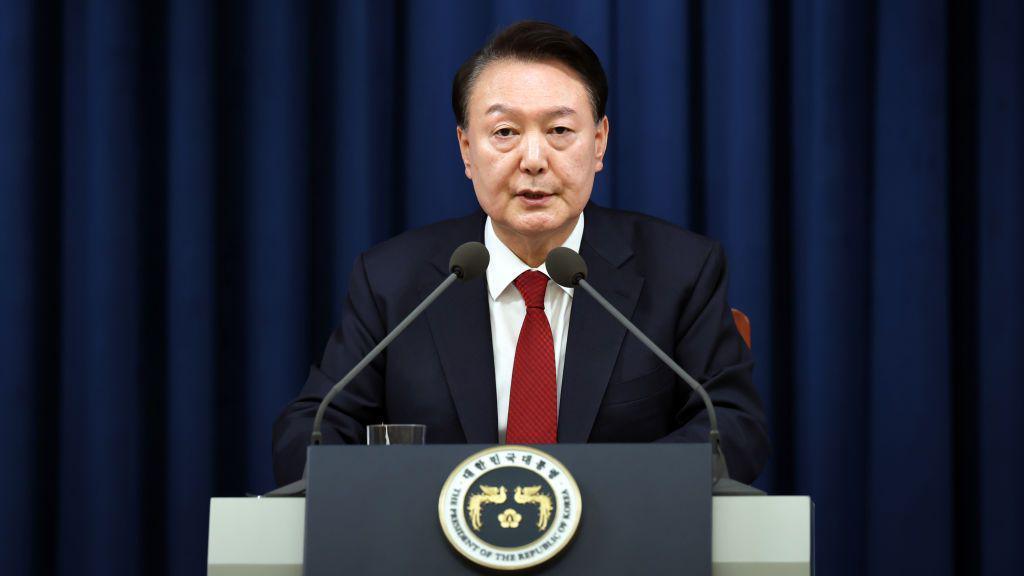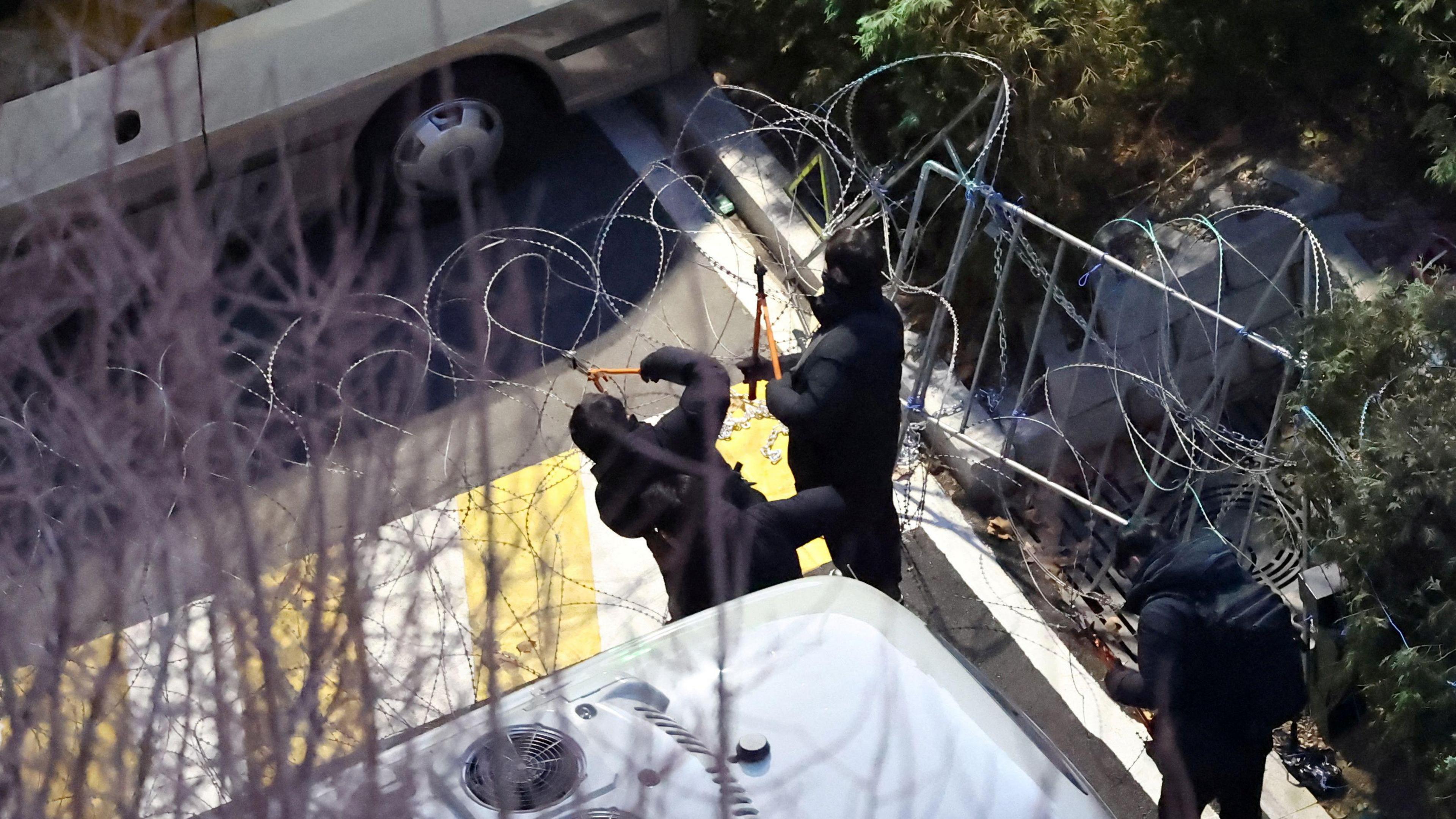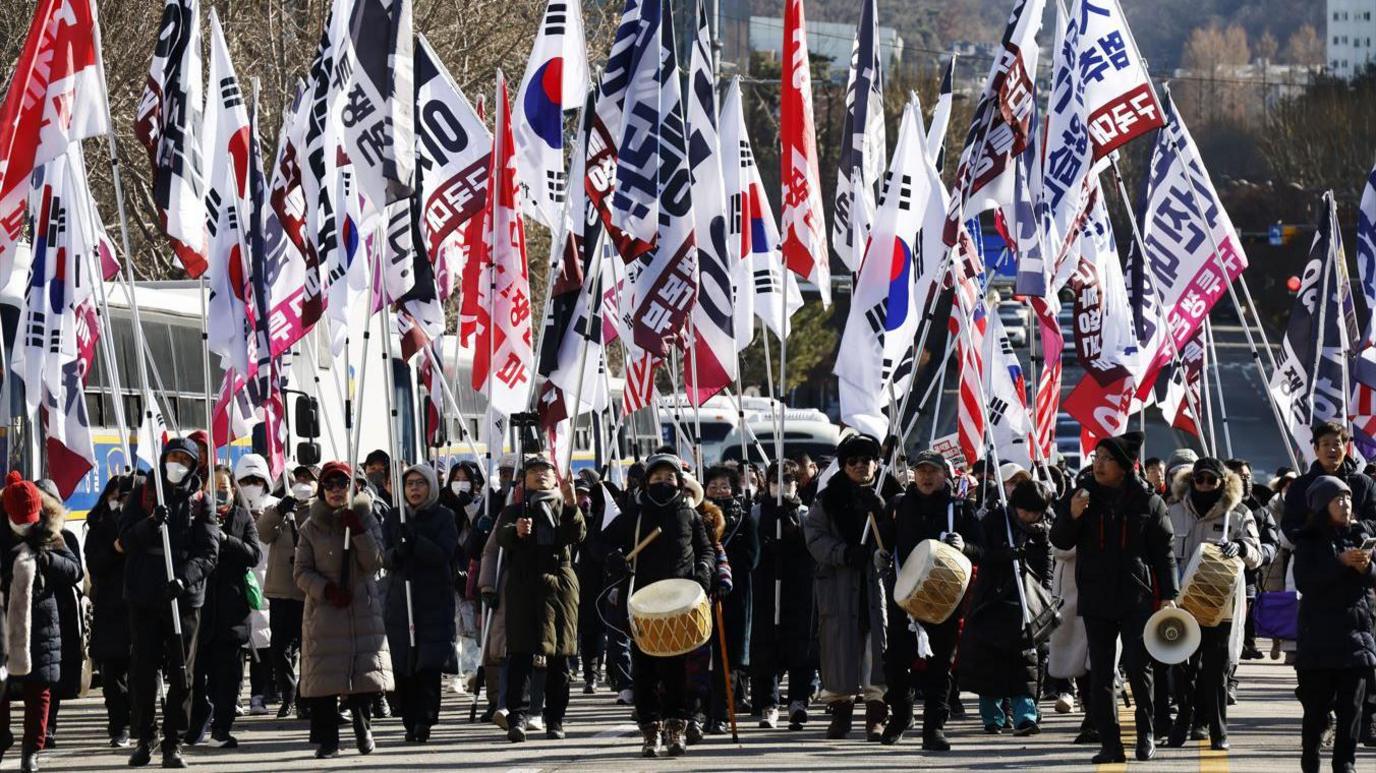Why has South Korea's President Yoon Suk Yeol been arrested?

- Published
South Korea's President Yoon Suk Yeol has been arrested by anti-corruption investigators.
Around 1,000 officers were involved in the operation and police had to use ladders and wire cutters to enter his official residence in the country's capital, Seoul.
It comes after he shocked the East Asian nation last month by announcing martial law.
This means he wanted to run the country in a different way, which challenged South Korea's democracy and caused political unrest in the country.
It's the first time in South Korea's history that a sitting president has been arrested.
What is happening in South Korea?
- Published4 December 2024
What is democracy and why is it important?
- Published15 September 2023
What is impeachment and how does it work?
- Published19 December 2019
A dramatic arrest

Police officers used wire cutters to get through barbed wire at the presidential residence
Officials in South Korea had previously attempted to arrest Yoon earlier this month, but they were blocked from reaching him at his official residence in Seoul by buses, security officers and barbed wire.
As a result, officials decided to send 1,000 officers from the police and anti-corruption team to make sure they were finally successful in arresting Yoon.
In the early hours of Wednesday morning, a team of investigators arrived, this time carrying ladders to get past bus barricades - as well as pliers to cut through barbed wire fences.
Other members of the team climbed walls and hiked up nearby trails in order to reach the presidential residence.
After several hours, authorities announced that Yoon had been arrested.
What will happen next?

Supporters of President Yoon protested against his arrest
Officials say that they have tried to interview Yoon, but he had decided to remain silent and not answer questions.
However, before his arrest, he released a video saying he would cooperate with the investigators, whilst maintaining he felt they were acting illegally.
He can be held until Friday, after which investigators would need to apply for another arrest warrant to keep him in custody - or he will be released, and free to return to the presidential residence.
In a separate development, South Korea's highest court started a trial to decide on whether to support parliament's impeachment of Yoon.
Impeachment is the process of bringing charges against an official for wrongdoing in office, and if it passes, President Yoon will lose his job.
Even though President Yoon's impeachment was approved in Parliament, the Constitutional Court of Korea has the final say.
If it doesn't agree with the impeachment, then President Yoon can keep his job and stay in office.
But if it approves the impeachment, President Yoon will be removed and an election must be held within 60 days to decide who will get his job.
